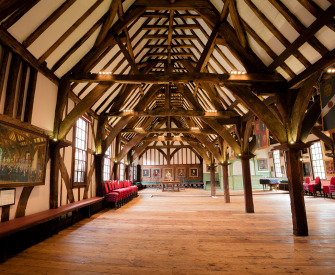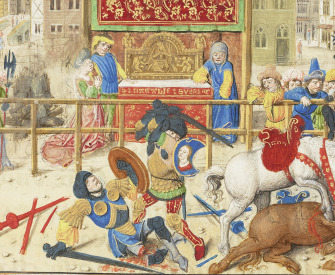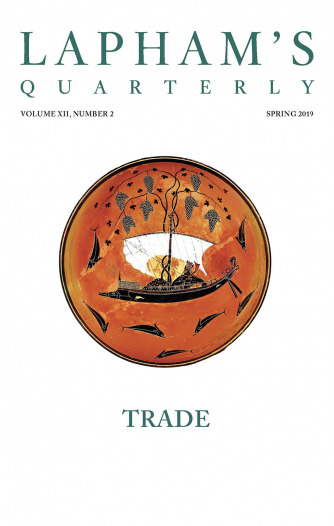Herbert, the dean, set up a windmill on Haberdun, and when the abbot heard this, he grew so hot with anger that he would scarcely eat or speak a single word.
On the morrow, after hearing Mass, he ordered the sacrist to send his carpenters thither without delay, pull everything down, and place the timber under safe custody. Hearing this, the dean came and said that he had the right to do this on his free fief and that free benefit of the wind ought not to be denied to any man; he also said that he wished to grind his own grain there and not the grain of others, lest perchance he might be thought to do this to the detriment of neighboring mills. To this, the abbot, still angry, answered, “I thank you as I should thank you if you had cut off both my feet. By God’s face, I will never eat bread till that building be thrown down. You are an old man, and you ought to know that neither the king nor his justiciar can change or set up anything within the liberties of this town without the assent of the abbot and the convent. Why have you then presumed to do such a thing? Nor is this thing done without detriment to my mills, as you assert. The burgesses will throng to your mill and grind their grain there to their hearts’ content, and I would have no lawful right to punish them, since they are free men. I would not even allow the cellarer’s mill, which was built of late, to stand, had it not been built before I was abbot. Go away,” he said, “go away. Before you reach your house, you shall hear what will be done with your mill.” But the dean, shrinking in fear of the abbot, and by the advice of his son, anticipated the abbot’s servants and caused the mill he had built to be pulled down by his own servants without delay, so that when the servants of the sacrist came, they found nothing left to demolish.
From the Chronicle of the Abbey of Bury St. Edmunds. Jocelin joined the monastery in 1173 and began working as an assistant to his former tutor Samson of Tottington, a powerful abbot. Jocelin begins the chronicle with his early days at the abbey, describing its initial disorder and Samson’s role in restoring it to prosperity. According to the scholars Diana Greenway and Jane Sayers, “World-shaking events, wars, and political maneuverings are recorded, but Jocelin pays greatest attention to what went on within the community and within men’s minds.”
Back to Issue


